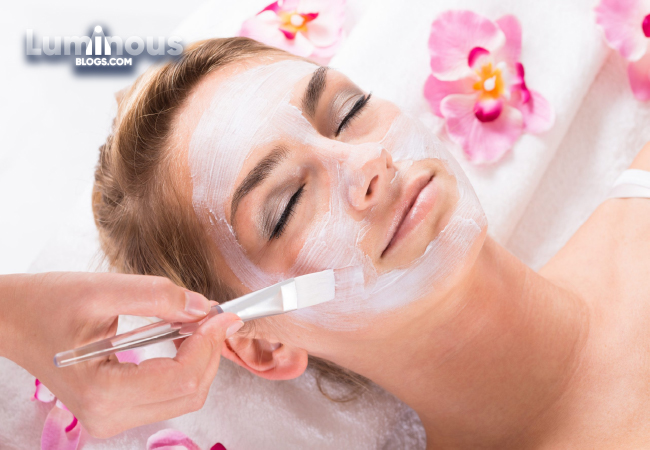
Achieving Healthy and Glowing Skin: Skincare Routines
Introduction
Healthy, glowing skin is not only a sign of external beauty but also a reflection of your overall well-being. Your skin is the largest organ of your body, and it deserves care, attention, and nourishment. Achieving and maintaining healthy and radiant skin isn't just about genetics; it's a result of a consistent and personalized skincare routine. In this blog, we will delve into the world of skincare, exploring the essentials of a daily skincare routine, understanding your skin type, and unlocking the secrets to achieving that enviable glow.
Understanding Your Skin Type
Before diving into the specifics of a skincare routine, it's crucial to understand your skin type. Knowing your skin type helps you choose the right products and tailor your routine to meet your unique needs. There are four main skin types:
Normal Skin: Normal skin is balanced, with a good oil-water ratio. It's not too oily or too dry, and it generally doesn't have many issues. Normal skin is smooth, clear, and has minimal sensitivity.
Oily Skin: Oily skin tends to produce excess sebum, making it prone to acne and blemishes. It can have enlarged pores and may look shiny, especially in the T-zone (forehead, nose, and chin).
Dry Skin: Dry skin lacks moisture and can feel tight, rough, or flaky. It may also be more prone to fine lines and wrinkles due to dehydration.
Combination Skin: Combination skin is a mix of two or more skin types. Commonly, it's oily in the T-zone and dry or normal on the cheeks.
Sensitive Skin: Sensitive skin is easily irritated by various factors, such as weather, certain ingredients in skincare products, or even stress. It can appear red, itchy, or experience burning sensations.
Understanding your skin type allows you to select the most appropriate products and customize your skincare routine accordingly.
The Essentials of a Skincare Routine
A well-rounded skincare routine should consist of essential steps that address various aspects of skin health. Here's a breakdown of the core components of a daily skincare routine:
Cleansing: Start your routine with a gentle cleanser to remove impurities, makeup, and excess oil. Use lukewarm water, as hot water can strip the skin of its natural oils. Cleansing is crucial for maintaining clear and healthy skin.
Toning: Toning helps balance the skin's pH levels, tighten pores, and prepare the skin for the next steps in your routine. Choose a toner that suits your skin type.
Serums: Serums are concentrated products designed to target specific skin concerns. Depending on your needs, you can incorporate serums that address issues like fine lines, dark spots, or hydration.
Moisturizing: Hydration is key to maintaining healthy and glowing skin. Apply a moisturizer suitable for your skin type to lock in moisture and create a protective barrier.
Sun Protection: Sunscreen is perhaps the most crucial step in any skincare routine. UV rays can cause premature aging, sunspots, and even skin cancer. Use a broad-spectrum sunscreen with an SPF of at least 30 daily, even on cloudy days.
Exfoliation: Exfoliating helps remove dead skin cells, unclog pores, and improve skin texture. There are two main types of exfoliation: physical (scrubs) and chemical (alpha hydroxy acids, beta hydroxy acids). Choose the method that suits your skin type and concerns.
Nighttime Routine: Your skin repairs and regenerates itself while you sleep. A nighttime skincare routine can include cleansing, toning, and applying products like serums and creams that promote skin renewal.
Additional Skincare Tips
In addition to a daily skincare routine, there are a few additional tips that can help you achieve healthy and glowing skin:
Stay Hydrated: Drink plenty of water to keep your skin hydrated from the inside out.
Healthy Diet: A balanced diet rich in fruits, vegetables, and antioxidants can support skin health.
Adequate Sleep: Aim for 7-9 hours of quality sleep each night to allow your skin to rejuvenate.
Reduce Stress: High-stress levels can negatively impact your skin. Practice stress-reduction techniques like meditation, yoga, or deep breathing exercises.
Avoid Smoking and Limit Alcohol: Smoking and excessive alcohol consumption can harm your skin's health. Cutting back or quitting can lead to noticeable improvements.
Regular Exercise: Physical activity boosts circulation and can give your skin a healthy glow.
Professional Consultation: If you have specific skin concerns or issues that persist despite a consistent skincare routine, consider consulting a dermatologist or skincare specialist for tailored advice.
Customizing Your Skincare Routine
Your skincare routine should be tailored to your skin type, needs, and concerns. Here are some general guidelines for customizing your routine based on your skin type:
Oily Skin: Opt for oil-free or gel-based products. Use a lightweight, non-comedogenic moisturizer. Consider products with salicylic acid to control oil.
Dry Skin: Choose hydrating and nourishing products. Look for moisturizers with ingredients like hyaluronic acid or ceramides. Use a richer, oil-based cleanser.
Combination Skin: Apply different products to different areas of your face to address the unique needs of each zone. For example, use a gentle, hydrating cleanser for dry areas and an oil-control product for oily zones.
Sensitive Skin: Select products that are fragrance-free and formulated for sensitive skin. Avoid harsh exfoliants and physical scrubs. Use gentle, soothing ingredients like aloe vera and chamomile.
Normal Skin: You have the freedom to choose from a wide range of products, but still, tailor your routine to address any specific concerns you may have.
Conclusion
Achieving healthy and glowing skin is a journey that requires care, consistency, and an understanding of your unique skin type and needs. By following a well-rounded skincare routine that includes cleansing, toning, moisturizing, sunscreen, and specific treatments as needed, you can nurture your skin to its full potential. Remember to stay hydrated, eat well, manage stress, and protect your skin from harmful UV rays. Ultimately, your skin is a reflection of your overall well-being, so prioritize self-care and enjoy the radiant results of your efforts.


